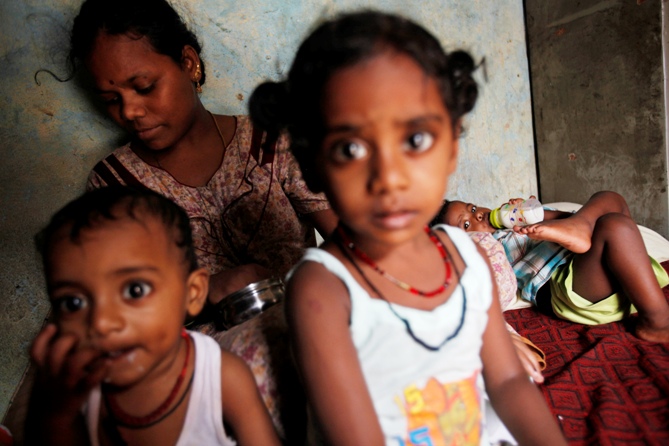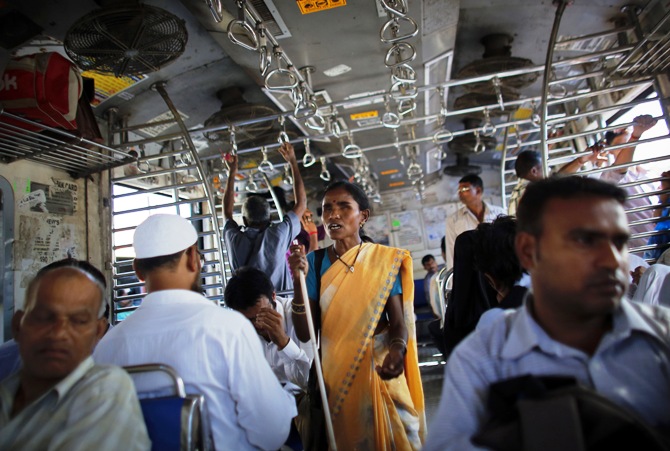 | « Back to article | Print this article |
How economic crisis doubled Indians' sufferings in recent years
Sufferings in India have more than doubled in recent years with one in every four Indian reported to be bearing the brunt of the nations' poor economic performance in recent years, a latest Gallup poll said.
Increase in sufferings in India has also resulted in an increase in sufferings in South Asia, the latest report from the American opinion poll agency said.
Click NEXT to read further. . .
How economic crisis doubled Indians' sufferings in recent years
"Average suffering in India more than doubled between 2006 to 2008 and 2010 to 2012. In 2012, a full quarter of Indians were suffering," it said.
"The significant deterioration in Indians' well-being is likely to be rooted in the country's disappointing economic performance. India's growth rate has now sunk from 9.4 per cent in the first quarter of 2010 to 4.4 per cent in the second quarter of 2013, the worst quarterly rate since 2002," it said.
Gallup said the Indian government's failure to cut graft and red tape, as well as to liberalise its markets for labour, energy and land explains why the World Bank continues to rank the country as a bad place to do business.
Click NEXT to read further. . .
How economic crisis doubled Indians' sufferings in recent years
Suffering, on an average, has increased worldwide in the past several years and nowhere more than in South Asia.
One in seven adults worldwide rated their lives poorly enough to be considered suffering in 2012.
South Asia led the world in suffering at 24 per cent, followed by 21 per cent in the Balkans, West Asia and North Africa.
Gallup said the massive increase in suffering among South Asians is largely attributable to negative developments in India, the region's giant.
Click NEXT to read further. . .
How economic crisis doubled Indians' sufferings in recent years
India's northern neighbour Nepal has fared no better, it said, adding that average suffering there increased by 17 percentage points between 2006-2008 and 2010-2012.
"Yet because of its relatively small population, the increase in suffering had a negligible effect on the regional average. Since Nepal abolished the monarchy five years ago, the country has been mired in a political crisis that has paralysed the economy," it said.



